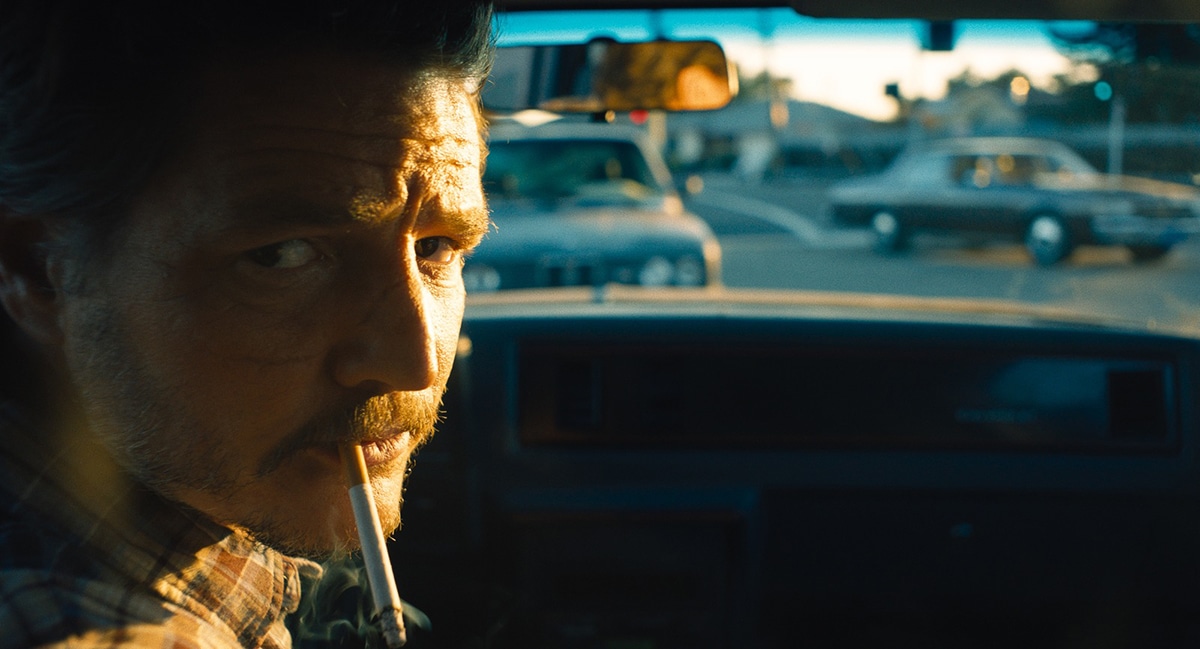If there’s one thing we need in the Year of the Lord 2025, it’s a gory revenge fantasy where the heroes are people of color and the bad guys are white supremacists. Enter Freaky Tales.
It’s all righteous anger with a Tarantino-topping level of violence. I’m talking karate-chopping-through-a-skinhead’s-body level of violence. While not for the faint of heart, the blood and guts on display are cartoonish they’re so over-the-top. So if you can relax into the mayhem of it, Freaky Tales offers a giddy fantasy of destroying the Nazis in our midst.
It’s set in 80s Oakland. The punk and hip-hop scenes are thriving, the town is united behind the pre-Stephen Curry Warriors, the cops are corrupt, and Pedro Pascal plays a man with nothing to lose. Oakland native Ryan Fleck and filmmaking partner Anna Boden divide Freaky Tales into four intersecting stories – brought together by a chance encounter outside the iconic Grand Lake Theatre for example – all deeply rooted in his hometown.
White power may be terrorizing the local denizens but they’ve created down-right utopian enclaves in response. In the first story, we meet an egalitarian punk collective, where all are welcome and they rule by community meeting. Ji-young Yoo as Tina and Jack Champion as Lucid lead this vignette as young, potential lovers who must figure out a way to stop the neo-Nazis who come weekly to their club to beat up punks and queers.
Next up is Normani as Entice and Dominique Thorne as Barbie, the duo of a rising rap group. Here again, we see an alternate society where the white cops are racist and misogynist but the underground hip-hop scene is welcoming and fair. Normani certainly has a star turn in her film debut. Expect to see her getting a lot more acting opportunities.
Pedro Pascal leads the third segment as Clint, an enforcer on the edge of retirement when his past catches up to him and his pregnant wife Grace (Natalia Dominguez). He plays a man of few words who must evolve his traditional, masculine identity from being primarily oriented around violence to instead focusing on caretaking. You know, just like in The Mandalorian and The Last of Us. It’s Pascal’s schtick and we’re here for it.
Lastly, it all comes to a head with Jay Ellis playing Eric “Sleepy” Floyd, the Warrior’s point guard. The white nationalist gang, led by the perfectly repulsive Ben Mendelsohn as a crooked cop and Angus Cloud as his lackey Travis in one of his final roles, decide to rob the basketball stars’ homes during a game. Of course, the idiots make a series of mistakes that lead to tragedy. A collector of ancient Asian artifacts and meditation evangelist, Sleepy doesn’t take the violence lying down. His revenge queues up the film’s climax as he invades and destroys the Nazi enclave, inadvertently setting Pascal’s character free in the process.
In each of these chapters, Freaky Tales gives us a just and ideal mini-society – Oakland’s local music scenes of the 80s, Clint and Grace in the car before it goes bad, Sleepy’s success on and off the court – all threatened by evil skinheads. These heroes take losses, particularly Pascal and Ellis, but then they win in such a spectacular fashion at the end as to affirm the film’s celebration of a racially diverse ideal.
As such, Freaky Tales invites us into a time and place with some central tenets we should all agree to – Nazis are bad! Pedro Pascal is good! The world is better when we respect the talents of Jay Ellis and Normani! True punks have always been diverse and their alternative, egalitarian societies should be honored (and replicated)!
Sadly, we’re all living in a world akin to Freaky Tales with white supremacists running rabid on our streets, in our institutions, and at the highest levels of government. Which is why watching this film where the good guys are more than up to the task of fighting off the skinheads feels so good. May its spirit of giddy resistance infect us and remind us that our local Nazis are small-minded, defeatable men. We may not have the superpowers or utopian sub-societies of the characters in Freaky Tales, but we have Pedro Pascal on our side. And we should resist white supremacy, together, at every turn.

